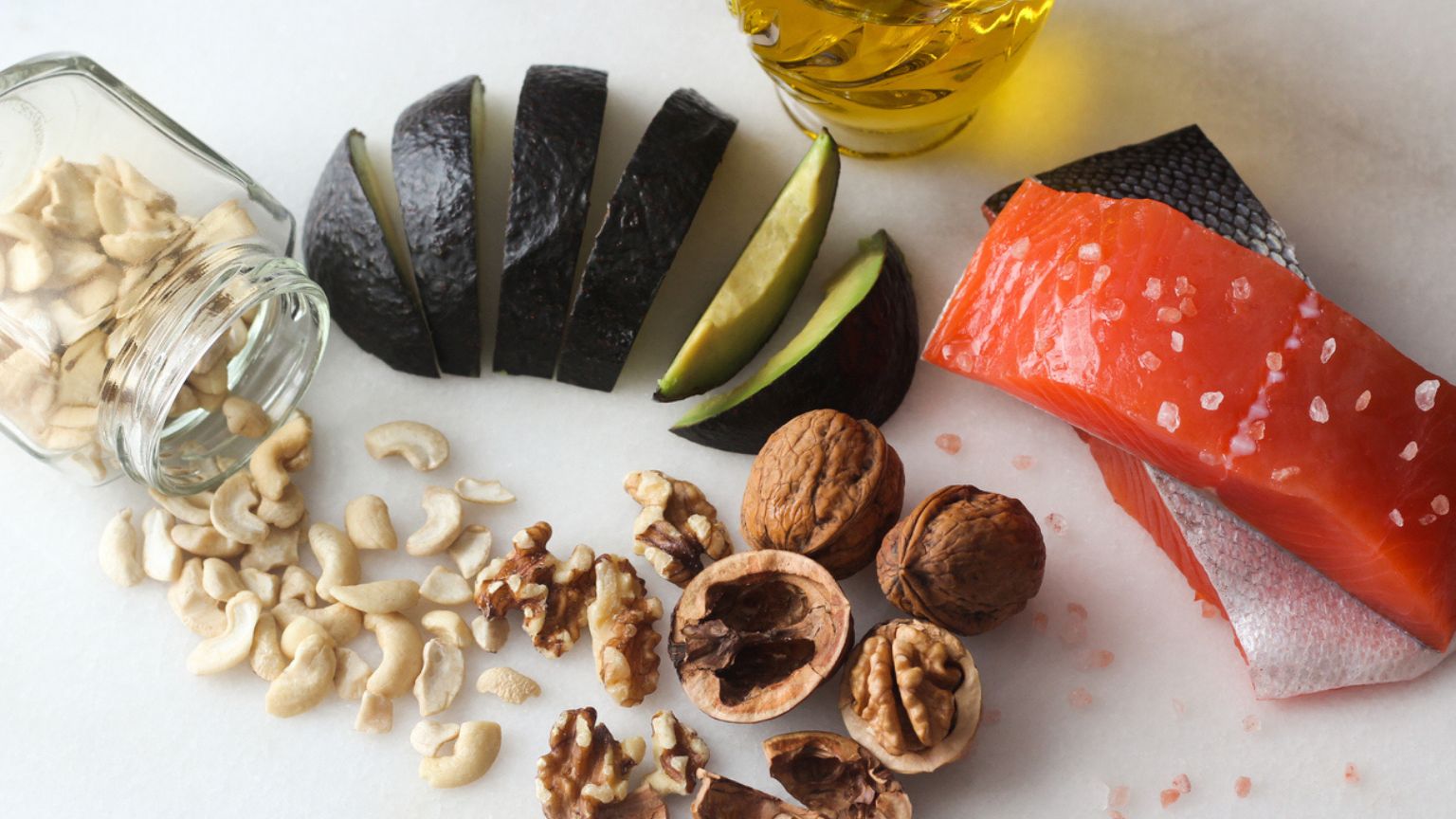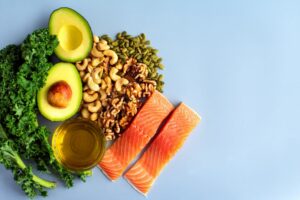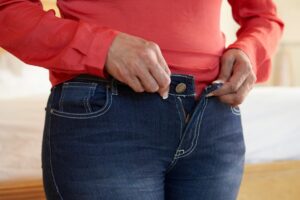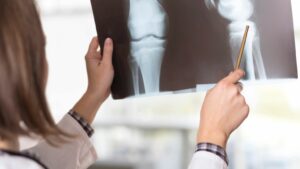What you need to know about menopause symptoms and the Mediterranean diet – nutritionist reveals why the diet is proven to ease symptoms
A recent study by The British Nutrition Foundation (BNF) looked at the role of supplements in managing menopausal symptoms and why the role of a healthy Mediterranean is key to relieving many of the symptoms.
Some women explore dietary changes and supplements as an alternative to HRT, especially women who cannot take this medication or simply choose not to.
a healthy Mediterranean is key to relieving many of the symptoms
Advice on diet and supplementation has been given little consideration in the scientific literature and expert position statements. Still, it is considered that eating a balanced diet will help to support women’s health through menopause.
The BNF study delved deeper into the topic to explore whether specific dietary changes could impact symptoms of menopause and help with its management.
How do you follow the Mediterranean diet?
The Mediterranean diet offers a perfect balance of good fats such as olive oils, avocados and olives, grains such as couscous, bulgar wheat and rice, proteins such as fish, chicken, red meat and of course an abundance of fresh vegetables – that’s as healthy as you can get.
- Stick to wholegrain carbohydrates and choose healthy fats in foods such as olive oil, avocado, nuts, seeds and oily fish.
- Stick to lean proteins found in fish, poultry, Quorn, tofu, beans and pulses while limiting your red meat intake and avoiding processed meats.
- Eat plenty of fruits and vegetables. Include at least five portions of non-starchy vegetables a day; for example, Aubergines, Peppers, Courgettes, Green Beans, Tomatoes, Cucumber.
READ MORE: Menopause symptoms at work: Government rejects calls for ‘menopause leave’ – a note from the Editor
Symptom #1 Hot Flushes
Hot flushes are a sudden sensation of heat that starts in the chest and face and then become generalized throughout the body.
Night sweats also fall under the same symptoms referred to as vasomotor. These symptoms are the most commonly experienced during menopause. The severity can be influenced by body weight, smoking and alcohol consumption.
Hot flushes are a sudden sensation of heat that starts in the chest and face
Research suggests that a diet rich in fruits, vegetables, wholegrains, pulses and legumes while having a higher intake of healthy fats from oily fish, nuts and seeds may help manage these symptoms.
A study of over 6000 women found that a diet high in fat and sugar increased the risk of vasomotor symptoms by 23 per cent.
This study also found that a diet with more fruit reduced the risk of symptoms by 19 per cent, while following a Mediterranean diet reduced the risk by 20 per cent.
Research has also suggested that women following plant-based diets experience fewer vasomotor symptoms of menopause.
Isoflavones are a type of phytoestrogen that mimics the effect of oestrogen but with much less impact. These compounds are found in beans, chickpeas, lentils and soy.
Specific isoflavones found in soy foods have been researched for their effect on hot flushes. Specific isoflavones found in soy foods include daidzein, genistein and glycitein.
Isoflavones are a type of phytoestrogen that mimics the effect of oestrogen
A Cochrane review of the evidence for using isoflavones found that administering genistein extracts (30-60mg/day) for 12 weeks to two years showed a 24 to 56 per cent reduction in hot flush frequency.
Try: Healthspan Soy Isoflavones – £17.95 for 120 tablets). These supplements are not advised for women with a higher risk of breast cancer.
READ MORE: Fatigue? Feeling cold? Dry flaky skin? 5 signs you have thyroid problems
Symptom #2 Weight Gain
Weight gain shouldn’t be considered an inevitable ‘symptom’ of menopause. However, fluctuating oestrogen and progesterone levels can cause the body to lay down fat faster than before menopause, especially around the middle.
The body works extra hard to turn calories into fat because fat cells produce oestrogen, making it easier to gain weight and more challenging to lose it.
Other changes, such as higher levels of follicle-stimulating hormone alongside oestrogen deficiency, can lead to increased loss of lean muscle mass.
fluctuating oestrogen and progesterone levels can cause the body to lay down fat faster
An extensive review of 11 clinical trials found that dietary interventions involving reducing daily calorie intake by following a low-fat diet were effective at reducing body weight during menopause.
The results were even more significant when teamed with exercise, promoting increased lean muscle mass.
It is well documented that adherence to weight loss regimes differs among people. Finding a strategy that works best for the individual and fits their lifestyle is the best option.
Women should ensure enough protein in their diet, especially if embarking on a weight loss regime to help maintain muscle mass during menopause.
READ MORE: Fad Diet FAQ’s with Instagram PT Courtney Black
Symptom #3 Osteoporosis
Hormonal changes during menopause disrupt your body’s natural bone-building process, as oestrogen helps preserve calcium and prevent bone breakdown.
Recent thinking recognizes that more is at play than just oestrogen alone. Research shows that low progesterone levels common in perimenopause may also affect bone-building cells, disrupting the natural process of bone breakdown and repair. Interfering with this process can have a chilling effect on the health of your bones over time.
Calcium is essential for strengthening bones and maintaining density. It’s advisable to follow the recommended guidelines of consuming calcium-rich foods (3-4 servings daily), including dark green leafy vegetables (but not spinach), nuts, seeds, dried fruit, tofu, tinned fish with the bones in, and dairy products like milk, yoghurt and cheese.
Calcium is essential for strengthening bones and maintaining density
Calcium cannot be absorbed without the help of vitamin D. You can get some vitamin D from foods such as oily fish, eggs, mushrooms and fat spreads or breakfast cereals fortified with vitamin D.
Food surveys show a lack of vitamin D amongst all groups of the population including women of menopausal age. It’s advisable to consider supplementing during the winter months when there is a lack of sunlight.
Still, women with low bone density may be advised to supplement all year round and for those women where HRT is not an option to help protect bone or those that have osteopenia.
Try: Healthspan Osteo Complete, £18.95 – with vitamin D, Boron, calcium, magnesium and copper to support bone health.
Lifestyle factors also increase the risk of both heart disease and osteoporosis, so try to stop smoking and limit your alcohol intake (men and women are advised not to drink more than 14 units a week regularly).
most bone losses occur one year before and two years after a woman’s last period
Research has indicated that most bone losses occur one year before and two years after a woman’s last period, so these three years are an essential time window for bone protection you need to take advantage of.
Avoid faddy diets that involve radically reducing carbohydrates and focusing on high fat and protein intake, as this can further lead to calcium loss in the urine.
Take a more balanced approach to weight loss that doesn’t focus on cutting food groups.
READ MORE: Are you at risk of osteoporosis? 3 ways to keep your bones healthy
Symptom #4 Depression
The risk of depression doubles during perimenopause versus pre-menopause which is thought to result from hormonal changes.
Improving diet quality overall could benefit several physiological processes involved in the causation of depression, which include inflammation and oxidative stress.
Switching to a diet made up of whole foods can help to ensure a good intake of nutrients that act as antioxidants and anti-inflammatories in the body, such as fruits, vegetables and whole grains.
The risk of depression doubles during perimenopause
A large meta-analysis including ten clinical trials found that phytoestrogens significantly reduced depressive symptoms in postmenopausal women relative to a control. In this study, it was shown that isoflavones were more effective than lignans.
Omega 3 may help with depression, according to research. One extensive review of 35 studies found that omega-3 supplementation may have a small-to-moderate effect on reducing depressive symptoms in people with a depressive disorder.
READ MORE: Feeling tired all the time? Boost brain power with these 7 super supplements
Symptom #5 Disturbed Sleep
Poor sleep quality is commonly reported during menopause. There seems to be a higher prevalence amongst perimenopausal and postmenopausal women than premenopausal women.
Disturbed sleep may be a primary disorder but can also be secondary to other symptoms such as hot flushes and night sweats. The relationship between poor sleep, severe hot flushes, and night sweats largely explains the depressed mood.
Following a balanced diet has been shown to help improve sleep, partly due to positive changes in body weight, which can disturb sleep for several reasons.
Following a balanced diet has been shown to help improve sleep
Research involving perimenopausal and postmenopausal women has shown that sleep efficiency (the ratio of total sleep time to time in bed) and quality are influenced by inflammation and raised markers for this.
Adhering to the Mediterranean diet helps to reduce these markers and is associated with better sleep.
Herbal supplements are often used to help promote sleep, mainly focusing on reducing anxiety. Valerian has been shown to have a sedative effect due to inhibiting enzymes that break down the inhibitory brain chemical called gamma-aminobutyric acid (GABA). As GABA levels rise, it dampens the over-stimulation that causes anxiety-driven thoughts.
Try: A Vogal Dormeasan – £11.99
Research shows that the best dietary approach to menopause is a more plant-based diet reflective of the Mediterranean diet.
Certain individual foods do appear to be worth considering as do certain supplement which research suggest may have an impact on specific symptoms associated with menopause.
In conclusion, the BNF study highlighted that there is no ‘magic bullet’ and there is still inconclusive evidence on supplements and herbal remedies when it comes to treating the menopause and it’s symptoms but, by making small dietary changes women could help alleviate some of the symptoms.
Rob Hobson is both a Registered Nutritionist and a Sports Nutritionist.
He is a Consultant Nutritionist for a number of brands and he also works with private clients on a one-to-one basis and can be found at www.robhobson.co.uk
HEALTHISTA’S ANSWER TO MENOPAUSE; MENOSTART: PRESS PLAY, NOT PAUSE.
The Healthista Menopause Pack is a fully comprehensive online video workshop, led by Dr Dawn Harper; affordable, accessible and covering all aspects of the menopause, for those who need it most.
With expert advice and information from seven credible menopause industry experts, we hope that this online resource will help women navigate common health and wellness changes and challenges they may experience before, after and during the menopause.
Like this article? Sign up to our newsletter to get more articles like this delivered straight to your inbox.



























































